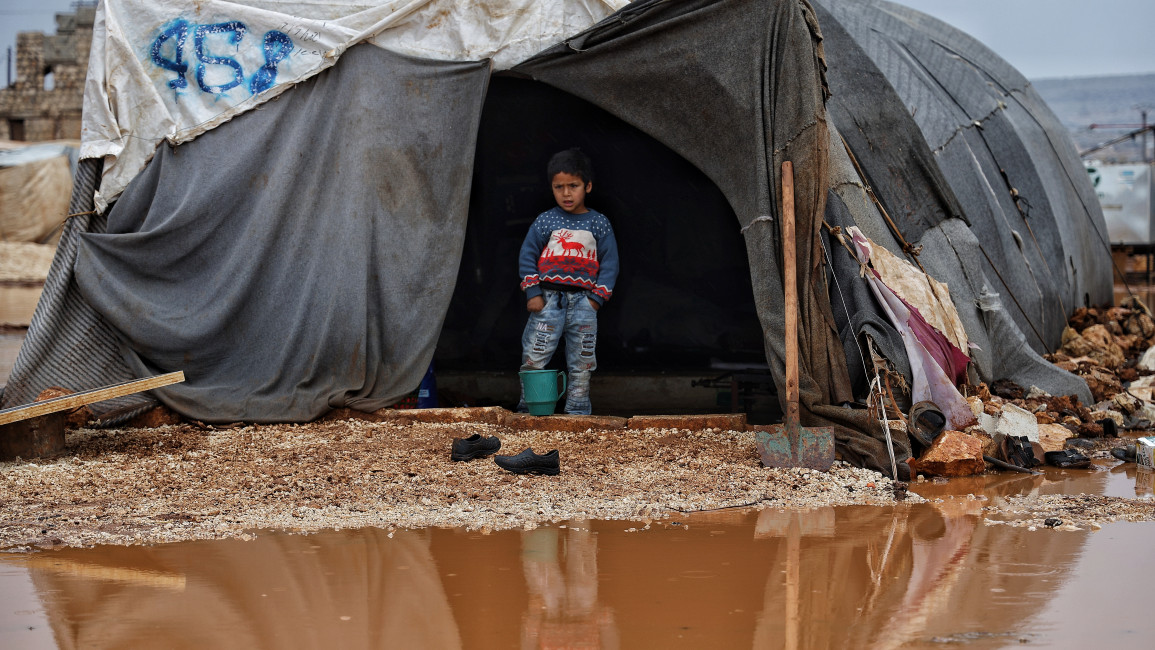Northwest Syria rainstorms destroy over 1,200 tents in camps for displaced
Northwestern Syria was hit by rainstorms on Sunday which damaged tents housing more than 1,200 internally displaced persons (IDP), according to Syria's Civil Defence, better known as the White Helmets.
The rainstorm resulted in 215 completely damaged tents and over 1,000 partially damaged tents, affecting over 1,100 families in the countrysides of Idlib and Aleppo, the group told The New Arab.
The rainstorm has exacerbated the terrible conditions of IDPs, most of whom fled north following Syrian regime offensives on opposition areas in other parts of the country.
"During the past 48 hours, the Syrian Civil Defence teams responded to 132 sites that were affected by torrential rains... the displaced are on the verge of a humanitarian catastrophe," Mousa Zidane, the White Helmets' media coordinator, told The New Arab.
IDPs are living in freezing conditions and lack basic necessities including heating and sanitation, while the coronavirus continues to spread across Syria.
With affected IDPs losing the little possessions they had to the floods, local NGOs have called on international relief groups to step in.
Fadel Abdul Ghany, the founder and chairman of the Syrian Network for Human Rights (SNHR) monitor, urged relief groups to provide "urgently needed essential[s]" to those in need.
"This is an urgent appeal... we request and prioritise sending furniture, sleeping necessities and heating material [to camps]," Ghany told The New Arab.
There are around 4 million IDPs in northwest Syria, many of whom are unable to access their homes elsewhere in the country due to war and fear of reprisals.
"The only solution is to provide safety for civilians to return to their homes, which the Assad regime and their Russian ally prevented them from doing," Zidane said.
The Syrian war, which resulted in over 500,000 deaths, led to over 6 million Syrian civilians becoming internally displaced and a further five million fleeing the country in search of safety and stability.


![President Pezeshkian has denounced Israel's attacks on Lebanon [Getty]](/sites/default/files/styles/image_684x385/public/2173482924.jpeg?h=a5f2f23a&itok=q3evVtko)



 Follow the Middle East's top stories in English at The New Arab on Google News
Follow the Middle East's top stories in English at The New Arab on Google News


